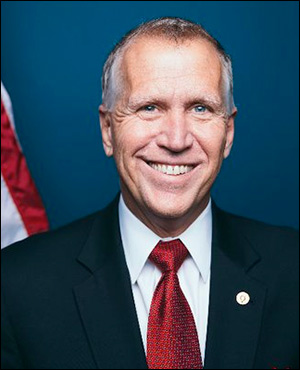By Jim Ellis

Former Senator and US Attorney General, Jeff Sessions (R)
WPA Intelligence administered the survey well before Sessions publicly declared, but just published the results over the weekend. The sampling period was Oct. 29-31, with a respondent universe of 511 likely Alabama Republican primary voters.
The results find Sessions leading the field with 36 percent voting preference. Auburn University former head football coach Tommy Tuberville is second with 23 percent support. The addition of Sessions to the field shows that Rep. Bradley Byrne (R-Mobile) dropping into a tie for third position with former state Supreme Court Chief Judge Roy Moore as the two record 11 percent apiece. Alabama Secretary of State John Merrill, the only current statewide elected official in the race, notches only six percent, and state Rep. Arnold Mooney (R-Shelby County) trails the entire field at just two percent.
If this poll is wholly accurate, it means that both Sessions and Tuberville would advance from the March 3 Super Tuesday primary into an April 14 run-off election to determine who will qualify for the general election opposite Democratic Sen. Doug Jones.
Just over two weeks before WPAi went into the field, the Cygnal polling organization tested the race. According to Cygnal (Oct. 10-12; 536 likely Alabama Republican primary voters), Tuberville led Rep. Byrne, 32-18 percent, and the two of them would have advanced into the second round. Secretary Merrill was next with 13 percent and Judge Moore followed with 11 percent, the same level of support that WPAi detected for the latter man when Sessions’ name was included. State Rep. Mooney records a similar one percent in this survey.




 Aug. 15, 2019 — New developments are occurring in 2020 Senate races across the country and several are apparently unofficially set for the general election. Below is a recap:
Aug. 15, 2019 — New developments are occurring in 2020 Senate races across the country and several are apparently unofficially set for the general election. Below is a recap: